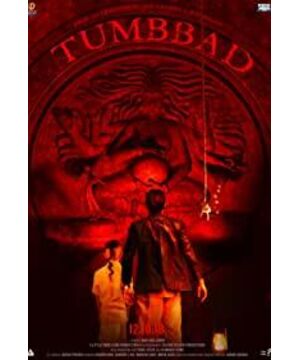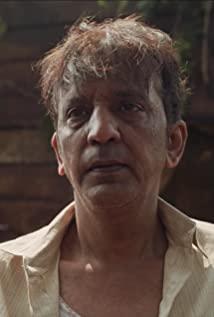In this high-scoring movie, there are too many related content and ideas to analyze.
The theme of the film is very simple, that is, human greed. This is clearly stated at the beginning of the film: "The world can satisfy everyone's needs, but not everyone's greed - Mahatma Gandhi."
Think about it, make a lot of money easily and enjoy a happy life, who doesn't want it? But this is only the most superficial part of greed. There is no limit to greed, which is a problem; the gene for greed is even more of a problem.
If our ancestors weren't greedy, they probably wouldn't have evolved to where they are today. For example, if you eat enough food, you don’t leave some, and accidentally become seeds; for example, if you eat enough meat, you don’t keep some animals in captivity, and you accidentally become livestock... Humans always have greedy genes, so the ancestors of fathers worship Hastur ( The child of the goddess of prosperity, greedy for gold and food, was eventually trapped in the womb of the goddess), and the grandmother was bitten by Hastur's gold coins because of greed and became an undead monster. Therefore, the father's lineage has greedy genes. The protagonist's mother may have been forced to marry a much older father, but she has always coveted her father's gold coins, although the father's gold coins and the bad consequences of her grandmother made her reluctant to let her child become a new generation of Hastur. 's devotees. However, genes still made him continue to be greedy, and so did his son.
But what we can take away from the movie is the key to dealing with greed. Why did he and his son plan to make a big fortune after learning that the family-owned temple was about to be reclaimed and developed by the government after he had clearly accumulated gold coins that could not be spent for several lifetimes? And when it finally succeeded, why did the son give up taking Hastur's purse? Is it out of guilt at his father's sacrifice (his idea), or out of fear of desire itself?
When the protagonist carries a large number of dough dolls (the original plan was to lure Hastur to gain more time to steal the "endless purse" behind Hastur), but he does not want to lure out the same amount of dough dolls as Hastur , for which the protagonist sacrificed his life for his son to escape. It is clear that behind desire is danger. We know the danger behind desire, but often overlook the greater danger behind greater desire. Therefore, stopping in time is the most critical. As hard as it is to say contentment, there are more and greater dangers to consider when confronted with greater desires. This is admonition. From this point of view, the son of the protagonist is right to choose to give up the "endless purse". Because of getting the purse, will Hastur follow him for the rest of his life? Obviously, the answer is yes! After all, Hastur is a god. Although he may have been trapped at the time, he might be released by government development. Even if not, he will be released one day. As a god, it is very easy to pursue your own purse. Even if the son can escape, what about the grandson, great-grandson, great-grandson? Not to mention, this kind of money bag will attract other gods and demons or greedy people!
Of course, wealth is at risk. Even if it is a gold coin, you have to get it yourself (gold coins are not a joke, you have to work hard to get them). The more gold coins, the more wealth, the greater the reward, the more and the greater the risk needs to be taken. Therefore, the key to life is to clarify your risk tolerance, accept your risk preference, clarify your own risk-taking style and degree, and obtain your own corresponding returns. Just like what the protagonist did at the beginning, he knew that his physical strength was not enough, so he cultivated the next generation, and he was satisfied with a few gold coins each time. This is the corresponding risk and reward. However, it has been overlooked that as a novice, the son has more luck, greater desire, and more ideas, and these become new "uncertainties", breaking the original risk appetite and risk monitoring.
In addition to the ideas behind the film, we can also explore its artistic conception. After all, the idea lies in interpretation, and the screenwriter did not consider too much of the purpose of expression, just to spread the traditional concept of "contentment" or "greed and guilt". But because of its specific interpretation, it makes people have to substitute more thinking.
I think the key to its artistic conception lies in the "creation of laws".
First of all, the story about "God" is a background that is very close to the traditional mythological expression, and it is also a very interesting fable. This is a "big and clever" form, which is very rare. The eldest son of the Goddess of Prosperity is also the most favored son. He wants to obtain all wealth and food, but the resources of the world must always be distributed. Even if it is not balanced, it cannot be owned by one god, which will naturally attract the wrath of the gods. . Therefore, the world's resources may be unevenly distributed because of classes, but if the upper class only wants to possess, but is not willing to share, it means revolution, means the encirclement and suppression of other classes, and means seeking death.
The second is the statement about the "stealing law". To steal Hastur's gold coins, he must provide the food that Hastur wants; Hastur has already obtained "endless gold coins" but still wants to get "all food". Possibly, also when he focuses on food, he temporarily ignores his purse. Similarly, to steal Hastur's gold coins, when Hastur swallows the food and finds that the purse has been pulled and the gold coins are dropped and stolen, it will be very angry, it will attack. So if you want to get gold coins, you must take the risk of death. As for the circle drawn by flour (completed in advance, it is the same as the circle drawn by Sun Wukong to guard against monsters with a golden hoop), Hastur not only needs to obtain the dough doll, but cannot enter the circle, obviously this is also a kind of " The Law of Contradiction" makes the story idea complete and impeccable.
View more about Tumbbad reviews










